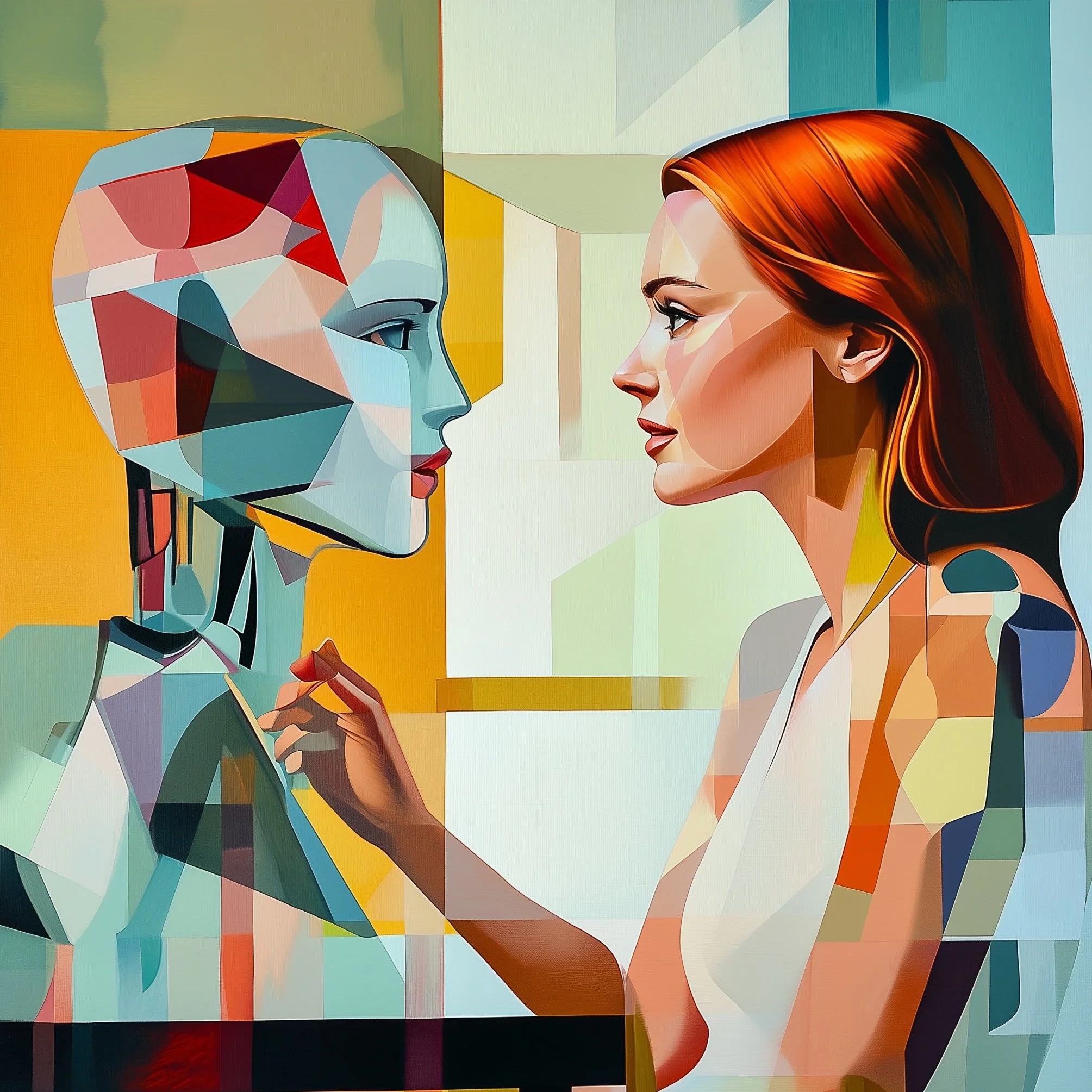"The Résumé Revolution: Standing Out When Everyone Sounds the Same"
As a consultant, I'm always on the lookout for the next project. And let me tell you, hunting for a job in the age of AI is like dating in the age of apps: everything looks polished, profiles are curated, and everyone’s swipe-right game is strong. But here's the twist—when everyone’s profile looks like an Instagram influencer’s feed, you start to wonder what happened to authenticity.
Lately, I've noticed an eerie similarity between my résumé and those of others in my network. Case in point: a colleague recently shared her professional bio on LinkedIn, and as I read it, I had a-ha moment. It was as if she had copy-pasted my résumé! (Of course, she didn’t, but the uncanny resemblance was there.) And it's not because we lack originality; it's because AI résumé tools are crafting everyone's stories from the same algorithmic recipe book.
AI Craftsmanship: Everyone’s a Perfect Fit
Thanks to tools like ChatGPT or Gemini, today’s résumés look like works of art. They’re clean, concise, and targeted with laser precision. AI takes the job description, extracts the keywords, and tailors our résumés to fit like a well-fitted suit. And that’s the point—sort of. We’re all trying to present our best selves and show recruiters that we can hit every requirement on their checklists. It’s like checking off the ingredients on a baking show: “You want leadership skills? Boom! You want a dash of team collaboration? Done. A sprinkle of strategic thinking? Let me toss that in.”
But there’s a catch. Everyone’s doing it. We’re all baking the same cake, and it’s getting hard to stand out. This reminds me of something I heard from a hiring manager friend: “It’s like scrolling through 200 identical LinkedIn profiles; I can’t tell who wrote these, who copied them, or who just hit ‘Generate.’”
The AI Interview: Playing the Game
And that’s just step one. After you’ve gotten your algorithm-approved résumé through the first screening, you get to the fun part: the AI-mediated interview. Picture this—You’re sitting in front of your laptop, staring at a countdown clock while an automated voice cheerfully instructs me to “describe a time you showed initiative under pressure.” No pressure, right?
Welcome to the age of gamified hiring. With AI assessing everything from my tone of voice to the tiny movements of my eyebrows, it feels more like trying to beat a video game boss than connecting with a future colleague. In one interview, the system rated me on a scale for cultural fit, asking me to rank statements like, “I find working with others inspiring” from “strongly disagree” to “strongly agree.” I remember staring at the screen and thinking, “This feels more like taking an online personality quiz to find out if I’m a ‘Creative Innovator’ or ‘Diligent Doer.’”
The whole process is so thoroughly optimized that it’s become a strategy game. And like in any game, those who know the rules best are the ones who succeed. This new hiring landscape rewards those who can master AI tools or afford to pay experts to craft their applications. If you’re tech-savvy, that’s great. But if you’re not, or if your strengths lie outside these parameters, good luck making it past the algorithmic gatekeepers.
The LinkedIn Algorithm and Its Consequences
This is where LinkedIn comes into play. It’s no longer just a job board—it’s a 24/7 networking event, professional knowledge hub, and, let’s be honest, a annoying birthday reminder app, I thought that was Facebooks’s job:) . Thanks to LinkedIn’s matching algorithm, roles are pushed based on keywords and past activity. The platform knows more about our professional preferences than ourselves. But despite the sophisticated matching, something gets lost in translation..
Is Authenticity the Price of Efficiency?
Now, don’t get me wrong, AI in hiring isn’t inherently bad. In fact, it’s the only thing standing between recruiters and death by résumé avalanche. But there’s a cost to efficiency. The more we optimize for key phrases and algorithmic approval, the more we risk losing the things that make us interesting, unique, and frankly, human.
So where does that leave us? At the end of the day, the most consistent way to get hired hasn’t changed in decades: it’s through connections and referrals. Despite all the advancements in AI, a personal recommendation from a colleague still outweighs the most pristine algorithmically-optimized résumé. It’s the professional equivalent of “knowing the bouncer at the club,” and let’s be honest, that still gets you in quicker than waiting in line.
What’s Next?
As AI takes over more of the hiring process, we need to be cautious about over-automation. Companies, in their eagerness to cut down on human error and unconscious bias, could be inadvertently introducing new biases through the algorithms they employ. Remember, an AI isn’t a neutral entity—it’s trained on data that reflects human decisions and behaviors, for better or worse.
So, what can job seekers do? Be authentic, be strategic, and—this is important—keep networking. AI might be evaluating your résumé, but humans are still doing the final interview. And humans appreciate a little bit of personality, a real story, and a good laugh. Just last week, a recruiter told me that what stood out most in an interview wasn’t a candidate’s bullet-pointed résumé but their genuine response to a simple question: “What’s the hardest thing you’ve ever failed at?”
In the age of AI, maybe that’s the trick: understanding the rules of the game, but not being afraid to break them a little. Because no matter how sophisticated AI becomes, there’s still one thing it can’t replicate: the complexity, creativity, and imperfect beauty of being human.
So keep customizing those résumés, practice for those AI-mediated interviews, but we can’t lose sight of what makes us, well, us. Because at the end of the day, no one ever got hired for being perfectly predictable.
